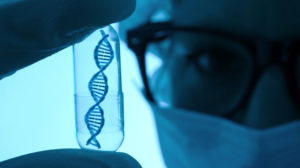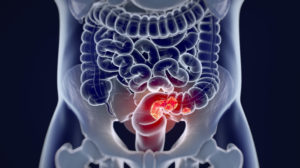Aging is inevitable, but epigenetics shows us how we can age better. Read on to learn more.
RELATED: The World’s Most Accurate Biological Age Test: It’s In Your Genes
In this article:
- Reduce Calorie Intake
- Exercise Regularly
- Reduce Exposure to Pollutants
- Limit Alcohol Intake
- Manage Stressors
Understanding Epigenetics: 5 Ways to Age Better
What is epigenetics? It’s a field that focuses on how DNA expression can change and the impact of these changes on development. It examines DNA modifications that don’t involve alterations in DNA structure.
Reduce Calorie Intake
Health experts have been promoting a balanced diet for a long time. Individuals who are overweight or obese are at a greater risk for several serious medical conditions.
Apart from reducing the risk of disease, reducing one’s calorie intake may also help you age better. Diving into epigenetics allows scientists to identify various biomarkers and processes that contribute to our understanding of aging.
One of these processes is DNA methylation. Epigenetic research shows that the extent of DNA methylation can predict how well an individual’s body functions. Over time, DNA methylation can increase and decrease in certain genome sites.
These changes usually happen more quickly in animals that age faster and have shorter lifespans. However, research shows that caloric restriction can slow down DNA methylation and even increase the lifespan of certain animals.
It’s important to remember that caloric restriction does not compromise the intake of essential nutrients. Studies show that certain nutritional deficiencies can harm DNA methylation and, ultimately, the aging process.
Exercise Regularly

It’s very hard to alter your DNA and its sequence, but you can do things to impact the epigenome. Your epigenome regulates gene expression, so it can turn off or turn on certain genes.
Studies have identified the different lifestyle interventions that can benefit the epigenome and the aging process. Regular exercise is one of these interventions.
Different studies show the promising epigenetic effects of different types of exercise. For example, resistance exercise led to epigenetic changes in metabolism and insulin pathways.
On the other hand, endurance exercises altered certain metabolic pathways and the expression of certain RNAs. More studies are needed to conclude which exercise offers the most benefits to the epigenome. Still, several studies show that regular exercise is associated with an improvement in the aging process and greater life expectancy.
Reduce Exposure to Pollutants
Studies show that chronic exposure to certain pollutants can lead to changes in DNA methylation and histone levels. Histones are proteins that support the structure of chromosomes.
When histone levels change, it can change how the chromatin is organized and, in turn, gene expression. Studies show that the level of histone expression can affect lifespan.
Here are some notable studies that show the effects of environmental pollutants on the epigenome:
- Exposure to high levels of arsenic caused the hypermethylation of certain genome regions.
- Long-term exposure to high levels of particulate matter, a type of air pollutant, decreases certain methylation promoters.
- Exposure to black carbon, a type of traffic particle pollutant, decreases LINE-1 methylation. LINE-1 hypomethylation is linked to certain types of cancers and cardiovascular disease.
- Exposure to benzene, which is a chemical from crude oil and coal, also reduces LINE-1 methylation.
To avoid these DNA methylation and histones changes and their negative effects on aging, it’s best to reduce exposure to pollutants.
RELATED: 3 Reasons Epigenetics Is Crucial for the Future of Anti Aging Medicine
Limit Alcohol Intake

Alcohol use may harm an individual’s healthspan and lifespan. Excessive alcohol intake increases the risk of several diseases and premature death.
Apart from disease and death, habitual heavy alcohol intake can also increase the rate of aging. One study shows that individuals with alcohol use disorder increase their biological age by an average of 2.22 years.
They ran a second analysis of their data focusing on individuals with more severe alcohol use disorder. The second analysis showed that these individuals had a higher rate of age acceleration.
On top of that, another study shows that individuals with alcohol use disorder had shorter telomere length compared to a control group. Telomere length is another epigenetic marker for aging.
Telomeres are structures at the end of chromosomes. It helps protect the chromosome structure as telomeres shorten with age and cellular health declines, affecting the healthspan and lifespan.
So if you want to age better, experts recommend limiting alcohol intake. At most, it should be limited to one drink each day for women and two drinks for men.
Manage Stressors
Apart from physical aging interventions, there are also psychological aging interventions to consider. Studies show that exposure to psychological stress may have an impact on DNA methylation.
Hypermethylation of certain gene receptors was seen among individuals with a history of child abuse. The good news is, animal studies also show that positive early experiences help mitigate the epigenetic effects of stress later on in life.
Chronic stress is linked to lasting epigenetic changes. These epigenetic changes then trigger inflammation and disease, which contribute to aging. So it’s important to find ways to manage stressors to promote better aging.
Researchers are learning more about the epigenome and its impact on aging. In the meantime, there are things we can do to improve our healthspan. If you’re interested in learning more about epigenetics and how it can help you age better, visit the TruDiagnostic website.
What do you do to age better? Please share your tips with us in the comments section below.
Sources:
Up Next:





